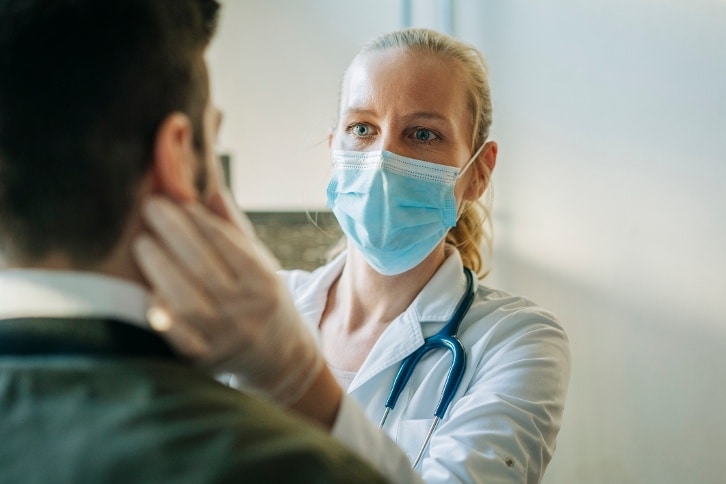7 Foods to Avoid with Kidney Disease and Diabetes

Did you know that diabetes and kidney disease are often connected? In fact, 1 in 3 people in the U.S. living with diabetes is also diagnosed with kidney disease. Diabetes is considered one of the biggest factors for increasing your risk of developing kidney disease. Over time, high blood sugar can damage the blood vessels in the kidneys. As a result, kidneys can become damaged and not perform necessary bodily functions as efficiently. Your kidneys remove wastes and excess fluids from your body; when they become damaged, these wastes can accumulate and eventually harm other organs in your body. This is also known as Diabetic Kidney Disease (DKD).
What to Expect at Your Annual Physical Exam with Your Primary Care Provider

It’s an alarming statistic: The Centers for Disease Control estimates that approximately six in ten adults in the U.S. are living with a chronic disease and four in ten adults have two or more chronic diseases, including heart disease, diabetes and cancer. Discovering the presence of a chronic disease is key to treating it in its early stages when positive outcomes are more favorable, which is why making an annual physical exam is important for delivering preventative health services and detecting problems before they start.
Everything You Need to Know About Coronavirus Antibody Testing in Connecticut

Antibody testing, also referred to as serology testing, can determine if a patient has produced an immune response to the COVID-19 virus. If you’ve gotten sick in the last few months since the emergence of COVID-19, you may be left wondering if you had the virus at one point or another. In addition, the virus can be asymptomatic (meaning the virus produces no symptoms) in some individuals, so you may have been previously infected without knowing. COVID-19 antibody testing can help answer some of these questions for you and your family.
Understanding Osteoarthritis vs. Rheumatoid Arthritis and their Symptoms

In the United States, approximately 54 million people, or about 23% of the total population, have some form of arthritis. While it’s normal to have an occasional ache or tenderness in your body, living with chronic pain in your joints is not. If left untreated, pain due to arthritis can be debilitating because it can limit your mobility and get in the way of your everyday life.
The Link Between Your Body’s Physical and Mental Health Explained

Recent data reveals that more people in the U.S. are reporting significant and sustained increases in symptoms of depression and anxiety due to the impacts of the COVID-19 pandemic. While we continue to adjust to our “new normal” and try our best to stay healthy physically, it is equally important to remember to take care of your mental health, as it is closely tied to your body’s overall wellness.
8 Health Tips for Women You Can Follow at Home

Maintaining good mental and physical health should always be a priority. However, during National Women’s Health Week, May 10-16, 2020, it is important to raise awareness of the positive steps you can take to improve your health and wellbeing. With new challenges being presented due to the outbreak of COVID-19, it is especially important to be mindful of your health and take care of yourself.
While your healthcare routine may have changed due to COVID-19, there are still plenty of ways to remain healthy and active while at home.


